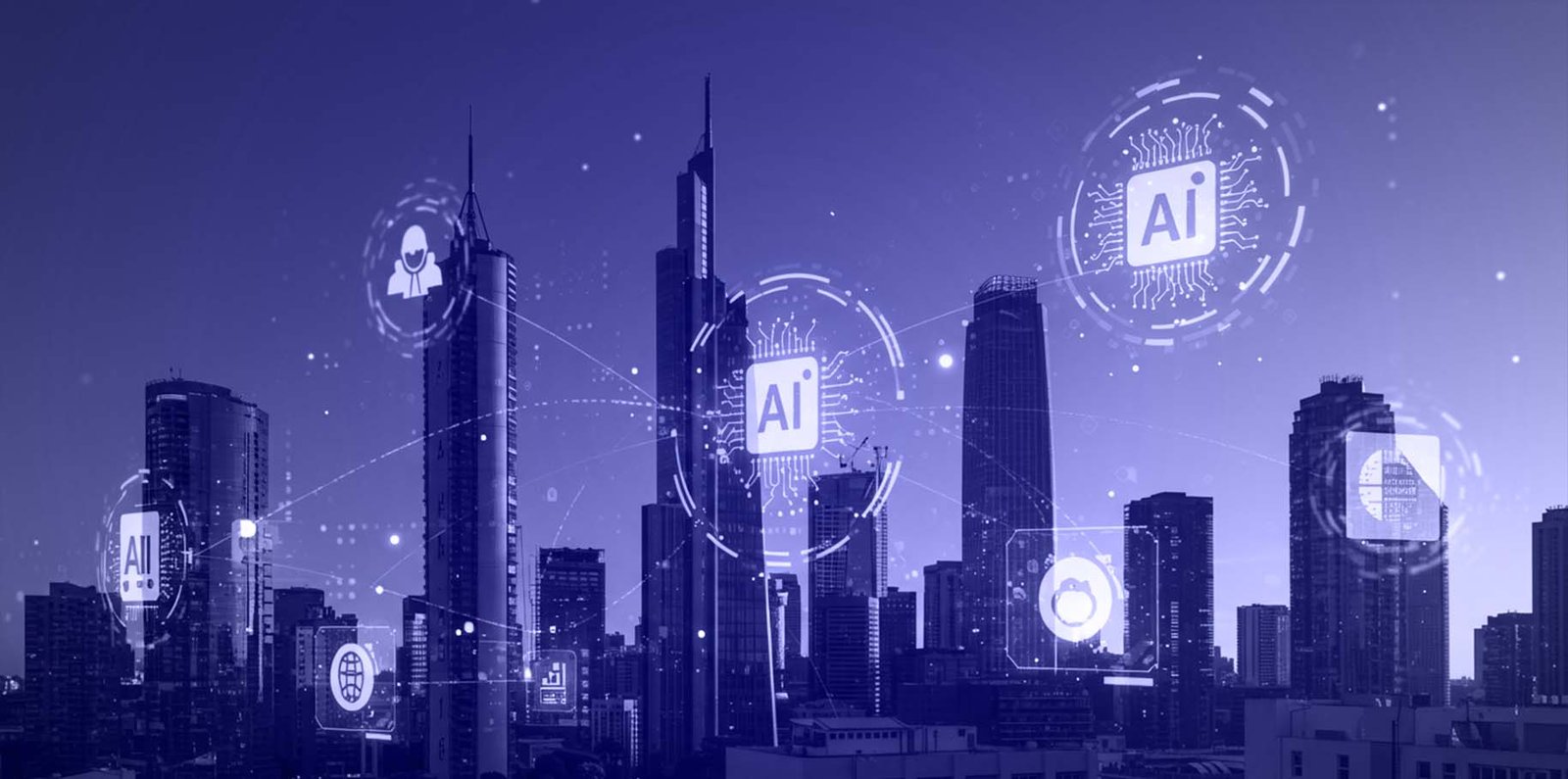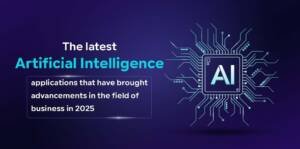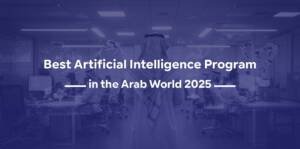AI agents have emerged as software tools capable of performing tasks autonomously without direct human intervention. Their role goes beyond simply executing commands—they understand, analyze, and make decisions. These agents have become essential across various domains such as customer service, real-time analytics, and the management of repetitive tasks within organizations.

Understanding AI Agents
AI agents are advanced technological systems that operate independently without requiring human input at every step. These systems comprehend their environment by collecting and analyzing information using intelligent agent applications, then make quick and appropriate decisions based on that data to accomplish pre-defined tasks. The human role is limited to defining the primary objective, while the agent determines the optimal path to that goal, learning and adapting in real time.
Imagine you’re interacting with an electronic customer service system. Instead of a real employee, you’re assisted by an intelligent agent that doesn’t rely on pre-written scripts. It understands your question, searches the company database, and provides an accurate response on the spot. If it detects the issue needs human intervention, it escalates the matter automatically to the right person—all without the user realizing they’re not talking to a human.
Core Principles Defining AI Agents
Not every smart application is truly intelligent. Most traditional programs execute predefined commands and follow rigid workflows regardless of changing conditions. In contrast, AI agents act with flexibility and make independent choices to achieve goals. They possess logical reasoning abilities, analyze situations, and make informed decisions based on environmental data—similar to an AI chatbot.
What distinguishes AI agents is their ability to act as if they “think.” When an agent receives data—whether from sensors or direct user inquiries—it doesn’t offer a canned response. Instead, it analyzes the information and selects the most appropriate action based on prior knowledge or observed patterns. This means its responses are dynamic and context-aware. For example, when dealing with an angry customer, the agent may take a different tone than when responding to a calm user, even if the query is similar.
To simplify, imagine a self-driving car navigating a road full of obstacles. Instead of waiting for external commands, the car gathers data through cameras and sensors, analyzes the road in real time, and makes autonomous decisions—should it turn, stop, or change lanes? All these decisions are made intelligently by the AI system to ensure passenger safety and reach the destination efficiently.
Importance of Using AI Agents
Modern organizations must adopt intelligent tools to stay competitive, and AI agents are no longer optional—they are foundational to operational efficiency. These agents leverage advanced technologies that allow them to think and make decisions based on data analysis. Their benefits include:
-
Speeding up Routine Tasks:
AI agents can handle repetitive tasks like data entry and FAQs without human involvement, freeing up staff to focus on core priorities. -
Reducing Operational Errors:
By relying on precise data analysis and consistent algorithms, AI systems significantly reduce human-related errors, especially in sensitive tasks like order processing or billing. -
Lowering Operational Costs:
Automating basic functions with AI agents reduces the need for large support teams, leading to long-term cost savings, especially in departments reliant on repetitive tasks. -
Improving Overall Productivity:
Delegating repetitive work to AI allows employees to concentrate on creative and analytical projects, boosting team output and value. -
Faster Decision-Making:
Smart systems can instantly analyze large data sets, enabling quicker and more accurate managerial decisions. -
Real-Time Data Monitoring:
AI agents continuously monitor market variables or internal performance metrics and send immediate alerts when issues arise, allowing proactive intervention. -
Instant Customer Interaction:
With AI-powered chatbots, companies gain 24/7 communication channels that handle customer inquiries and deliver instant solutions without delays. -
Personalized Customer Experiences:
These systems accurately analyze user behavior and suggest tailored products or services, increasing conversion rates and overall satisfaction. -
Enhanced Marketing Campaigns:
Through data-driven audience targeting, AI can identify the most relevant segments, optimizing ad performance and reducing wasteful spending. -
Flexible Adaptation to Change:
Unlike traditional systems, AI agents can adapt to new conditions—whether in the market or within the organization—without requiring manual reprogramming each time.
How AI Agents Work – A Simple Breakdown
The functionality of AI agents is based on several structured steps, including:
-
Receiving the Core Task
Each cycle begins with clear instructions or a primary goal. This could be a simple inquiry or a complex data analysis task. The agent carefully understands and categorizes the mission to ensure effective handling. -
Dividing the Goal into Smaller Steps
Rather than tackling the goal all at once, the agent breaks it down into manageable sub-tasks for step-by-step execution, ensuring full control at each phase. -
Collecting Necessary Data
An intelligent agent cannot act without sufficient knowledge. It gathers essential data from internal systems, online sources, databases, or prior interactions—covering search, extraction, and comprehension. -
Understanding Context
Before acting, the agent analyzes the surrounding context—who it’s interacting with, the current situation, and influencing variables—to ensure logical and accurate responses. -
Determining Execution Strategy
Based on collected data and context, the agent chooses the most appropriate method, leveraging pre-configured models for both precision and adaptability. -
Executing Tasks Intelligently
The agent carries out the task accurately, whether answering a question, updating a file, or triggering an action—while ensuring each step aligns with the intended plan. -
Monitoring Outcomes Continuously
The agent doesn’t stop at task completion—it reviews the outcome after each step to ensure it meets user goals. If a discrepancy arises, it adjusts immediately. -
Learning from Experience
After each task, the agent evaluates its performance, learns from it, and stores key insights (like feedback, success metrics, or errors) to improve future performance. -
Collaborating with Other Systems
Often, AI agents work alongside other agents, analytics tools, or machine learning algorithms—sharing data and receiving input to enhance overall efficiency. -
Re-Evaluating When Necessary
If new information appears or conditions change, the agent reassesses the entire objective—reordering steps or adding new tasks to achieve the best outcome with minimal effort.
Challenges of Using AI Agents
Despite their vast potential, the adoption of AI agents brings several challenges that organizations must address, including:
-
Safeguarding Sensitive Information
AI systems process massive data volumes. Ensuring the privacy of individuals and the organization requires robust encryption protocols and data leak prevention. -
Bias in Outcomes
Some models may produce biased or imbalanced results due to flawed training data. Continuous monitoring and tuning are vital to avoid errors and discrimination. -
Shortage of Skilled Talent
Deploying AI agents requires expertise in complex fields like machine learning and data engineering, which may be scarce in some organizations. -
Overdependence on Technology
Excessive reliance on intelligent agents can undermine human analytical skills and reduce empathy in customer interactions or problem-solving. -
High Resource Consumption
Training and operating advanced models demand robust infrastructure and high-performance servers, leading to significant costs that not all businesses can afford. -
Integration Complexity
Connecting AI agents to existing enterprise systems often requires extensive technical development to ensure seamless compatibility and performance. -
Legal and Regulatory Concerns
Some countries enforce strict laws on AI usage, especially concerning personal data and predictive analytics. Compliance with these regulations is crucial. -
Opaque Decision-Making
Many AI agents operate as “black boxes,” making it hard to understand or trace their decisions—posing challenges for error correction and accountability.
AI agents How Can OptiAutomate Support Your AI Agent Requirements?
OptiAutomate provides powerful solutions based on independent AI agents to help organizations manage contact centers and analyze customer data in real time—without the need for manual input. With this advanced technology, any company can gain accurate and automatic insights to enhance customer experience and monitor performance. Here’s how these solutions are implemented in our company:
-
Real-Time Summarization: OptiAutomate’s AI agents can instantly summarize phone or text conversations right after they end.
-
Key Phrase Detection: Important keywords or phrases are automatically identified to understand customer needs.
-
Sentiment Analysis: Each conversation is analyzed to detect positive or negative emotions using natural language processing (NLP).
-
Sensitive Data Redaction: Personal data is automatically redacted to maintain customer privacy and ensure regulatory compliance.
-
Performance Insights: Management can review customer service agent performance based on detailed analytics provided by the AI agent.
-
Scalable Architecture: Our agents are built on AWS infrastructure, enabling seamless scalability in a secure environment.
-
Pre-Launch Training & Testing: Agents can be trained and tested before deployment in a production environment.
-
Access to Advanced Models: OptiAutomate can integrate cutting-edge models such as Claude and Llama 2 to build sophisticated AI agents.
-
High-Performance Training: Our models are trained using AWS Trainium, a high-powered processor designed to support fast and efficient deep learning.
-
Seamless Integration: Agents are easily customized and integrated into your existing enterprise systems without complexity.
Conclusion
In today’s business environment, organizations need smart tools to manage operations with accuracy and efficiency—without unnecessary complexity or wasted time. That’s where OptiAutomate comes in. Our company delivers advanced solutions built on independent AI agents, specifically designed to help you achieve your operational goals with minimal effort. Through our services, any organization can take their customer engagement and internal processes to a smarter, faster level—while maintaining data privacy and performance quality at the same time.
Frequently Asked Questions
What are the types of intelligent agents?
Intelligent agents come in various forms, including:
-
Reactive Agents: Respond to their environment in real time without storing past experiences.
-
Model-Based Agents: Use historical data and internal models to make informed decisions.
-
Goal-Based Agents: Operate with a defined objective and make decisions to achieve it.
-
Utility-Based Agents: Choose actions that provide the greatest overall benefit to the user.
What is the function of an AI agent?
AI agents are designed to autonomously perform tasks based on commands or defined goals. These tasks include answering customer inquiries, analyzing data, and managing operations efficiently—without constant human involvement.
What is the salary of an AI agent?
Since AI agents are software programs, they don’t receive salaries. However, professionals who develop and manage AI agents typically earn between $80,000 and $150,000 annually, depending on their expertise and the industry.
What are the most popular AI company stocks?
Some of the most prominent AI-related stocks in the global market include:
-
Nvidia (NVDA)
-
Microsoft (MSFT)
-
Alphabet, the parent company of Google (GOOGL)
-
Amazon (AMZN)
-
Meta (META)
-




